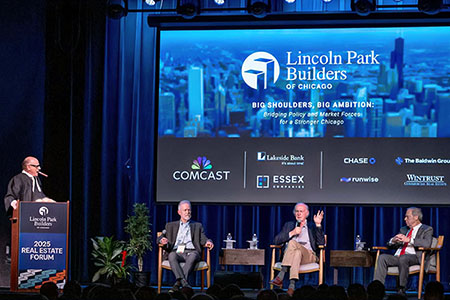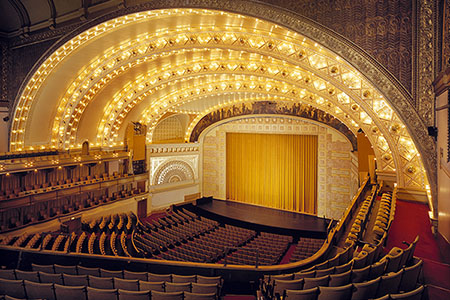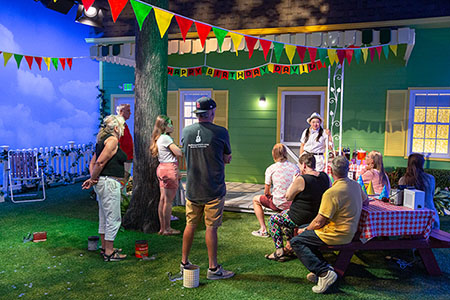(Above) Richard J. Daley Center, location of the Clerk of the Circuit Court of Cook County. Cook County Building in distance at left. Oct. 5, 2020 – While the Cook County Circuit Court system reopened on July 6, the court has adapted to the pandemic. Many court operations have been moved online, through teleconferencing, while the court has implemented public safety procedures for in-person proceedings. In March, the court system made the unprecedented decision to shut down to safeguard the health and safety of the public and its employees. During the shutdown, limited cases were heard, such as custody and orders of protection, but other divisions such as traffic postponed operations. Grand jury trials continued during the shutdown but jury trials were suspended. As of July 6, all court divisions have resumed their operations, with the exception of jury trials. The court has given judges the discretion to permit the use of telecommunications for court proceedings “to the extent reasonably possible.” Judges, attorneys, and parties are able to “go to court” via Zoom, telephone, and other virtual means, depending on the judge. While all divisions have resumed operations, evictions and foreclosures are still halted until October 17, except in situations where a tenant in an eviction case is a threat to other tenants or property. Douglas Miller, an attorney in Hoffman Estates, says some judges will allow lawyers to email them a proposed agreement between parties, instead of having to meet to discuss it. If there’s a disagreement on a case, the parties will meet either in person or via Zoom. Miller says he is doing most of his court calls via Zoom and they have been running well. He credits technologically savvy judges who are helping to facilitate the change. He says some judges have put information online about how to move forward with cases. Miller acknowledges that not everything can be done virtually. He’s had to go into the court building to drop off service documents with the sheriff’s office and check on orders.
He credits the Presiding Judge of the Domestic Relations Division, Honorable Grace G. Dickler, because she reacted promptly and “created a system for people to access [the law] as quickly as possible.” New safety procedures for in-person proceedings The new methods of court proceedings were not the only changes since the reopening. For cases requiring in-person appearances, the court has implemented public safety procedures, including mandated temperature checks, masks, and social distancing within the courthouse. The court advises people to take additional time to get through security lines for all the new public safety measures. Mohr says many people have the misconception that the courts are still closed. Circuit Court “is open and fully accessible,” he says, but some functions of the court are limited by moratoriums, such as the eviction and foreclosure halt. Whether these changes become permanent is an open question. Miller points out that his court calls are now 15 minutes, whereas in the past, it could take up to three hours between commuting and going through security.
|















